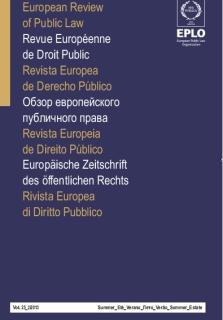
Jurisprudence
Eurosystem, Financial and Banking Law /
Eurosystème, Droit financier et bancaire
CHRISTOS VASSILOPOULOS / PIERLUIGI CARISTI*
Members of the Legal Service of the Banque Centrale du Luxembourg
In the Feyerbacher judgment, the Court of Justice of the European Union has interpreted for the first time the Headquarters Agreement between the ECB and the Federal Republic of Germany in the framework of a reference for a preliminary ruling. This shows once more that the Court considers itself competent to provide an interpretation of agreements which do not fall prima facie within its sphere of competence. In this judgment, the Court has examined firstly if the Headquarters Agreement is an act of European Union law and, secondly, if the applicability of the German law conferring an allowance to the ECB officials is excluded where the ECB confers a comparable social benefit on its staff. The judgment shows, on the one hand, that in the future this agreement can be further interpreted by the Court and, on the other hand, that there is an interaction between a na¬tional social security framework (in concreto, the German framework) and the conditions of employment of the ECB concerning the allowance.
Dans le jugement Feyerbacher, la Cour de justice de l'Union européenne a, pour la première fois, interprété l'Accord de siège entre la BCE et la République fédérale d'Allemagne dans le cadre d'une demande de décision préjudicielle; ce qui prouve de nouveau que la Cour de justice se considère compétente afin d'interpréter des accords qui ne relèvent pas prima facie de sa compétence. Dans ce jugement, la Cour de justice a, premièrement, examiné si l'Accord de siège fait partie du droit de l'Union et, deuxièmement, si le droit allemand conférant des prestations sociales au profit du personnel de la BCE est applicable dans le cas où la BCE confère à son personnel des prestations comparables. D'une part, le jugement démontre que, à l'avenir, cet accord est susceptible d'être interprété plus avant par la Cour de justice et, d'autre part, qu'il existe une interaction entre le cadre juridique national de sécurité sociale (le cadre allemand, dans le cas d'espèce) et les conditions d'emploi de la BCE relativement à ces prestations.





















